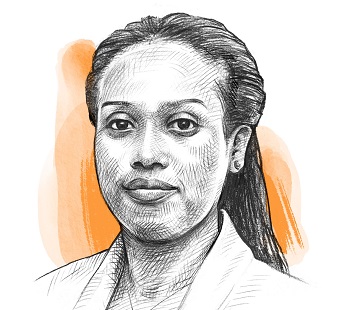LAMARR - Programme to Support Youth Integration in the Digital Sector
Objective
-
€9mBUDGET
-
01/02/2023PROJECT START
-
60 monthsDURATION
Digital technology for vocational integration in El Salvador
The LAMARR project is part of the Multiannual Indicative Programme 2021-2027 (MIP) produced by the delegation of the European Union to El Salvador, which has set as a priority the digital agenda and its participatory and inclusive implementation, with all the stakeholders (private sector, civil society, academia…).
The main objective of the project is to strengthen the professional skills and vocational integration of young women and men, including the most vulnerable. This will be achieved through an inclusive and collaborative community-based training and vocational integration system, by taking advantage of the opportunities offered by the digital transformation.
Strengthening the professional skills of young people with the LAMARR project
Expertise France is implementing the LAMARR project through five main lines of action.
1. Improve access to apprenticeship, initiation, and recruitment in the digital sector, taking into account psychosocial/emotional needs, gender issues, and fair recruitment
The local project partners are conducting a thorough assessment of the socioeconomic, psychological and emotional constraints of the target groups, as well as the gender-related barriers and gender issues. This analysis will make it possible to capitalise on good practices and design appropriate action plans, which will be implemented in the beneficiary training facilities of the project.
2. Design and implement apprenticeship and socio-professional integration schemes in partnership with professionals in the digital sector
The project aims to restructure and diversify existing digital training courses, in connection with the world of work. Throughout the project, and working with the training centres selected, the training courses will be enhanced, overhauled and strengthened to ensure a permanent and stronger vocational integration.
3. Capacity building for training operators in the digital sector
Based on the new training courses developed, work will be conducted on identifying the capacity-building needs of the training operators, with a focus on the training of trainers.
4. Strengthen partnerships and networking between private sector players and training operators
Based on the overall project action plan, an action plan on business involvement will be developed collaboratively. This plan aims to give visibility to professionals on their operational commitments towards the achievement of the objectives, anticipate the periods when they will be actively involved, and monitor and evaluate the implementation of this collaboration. Furthermore, a joint work plan will be established with the training operators to develop a charter of good practice, in particular concerning certifications for learners in the digital field and the transition between training and employment.
5. Creation of a decent work label in the digital sector
As part of the project, operational research will be conducted on the opportunity of developing a label promoting ethical work practices and relations in the digital sector, as well as the CSR of the companies involved.
Based on the results of this study, the assessments of the various focuses of the project, and the context, it will be possible to deploy this label on a pilot basis during the fourth year of the project implementation.
Close cooperation with our Salvadoran partners
The LAMARR project is financed by the European Union, with co-financing from the French Ministry for Europe and Foreign Affairs, and implemented by Expertise France alongside its partners in El Salvador.
MUCHAS MAS – Gender issues
A Salvadoran organisation created on 30 June 2018, mainly composed of young women working to reduce gender gaps and promote real gender equality in the country.
Find out more at www.muchasmas.org
FUNPRES (Pro-Education Foundation of El Salvador) – Psycho-emotional risk
A non-profit, non-governmental organisation with 33 years of experience in the fields of education and mental health.
Find out more at https://funpres.org.sv/
CAPRO – Network of foundations, companies and associations dedicated to vocational training in El Salvador
A non-profit association representing a group of private vocational training operators (foundations, companies and associations) which aims to scale up the impact of its activities to generate economic opportunities and strengthen the national social fabric. CAPRO currently represents 18 organisations which manage 31 vocational training centres.
Find out more at https://capro.sv/
CASATIC – El Salvador Chamber of Information and Communication Technologies
This association will be mobilised under the project to:
• Promote the participation of socio-professional stakeholders in the activities related to the development of community-based centres and the involvement of companies in the digital sector
• Implement the quality insurance system, including the evaluation of students in collaboration with other partners, in particular concerning the development of the quality and ethics label
• Contribute to the monitoring-evaluation and capitalisation-learning activities
Find out more at www.casatic.org


